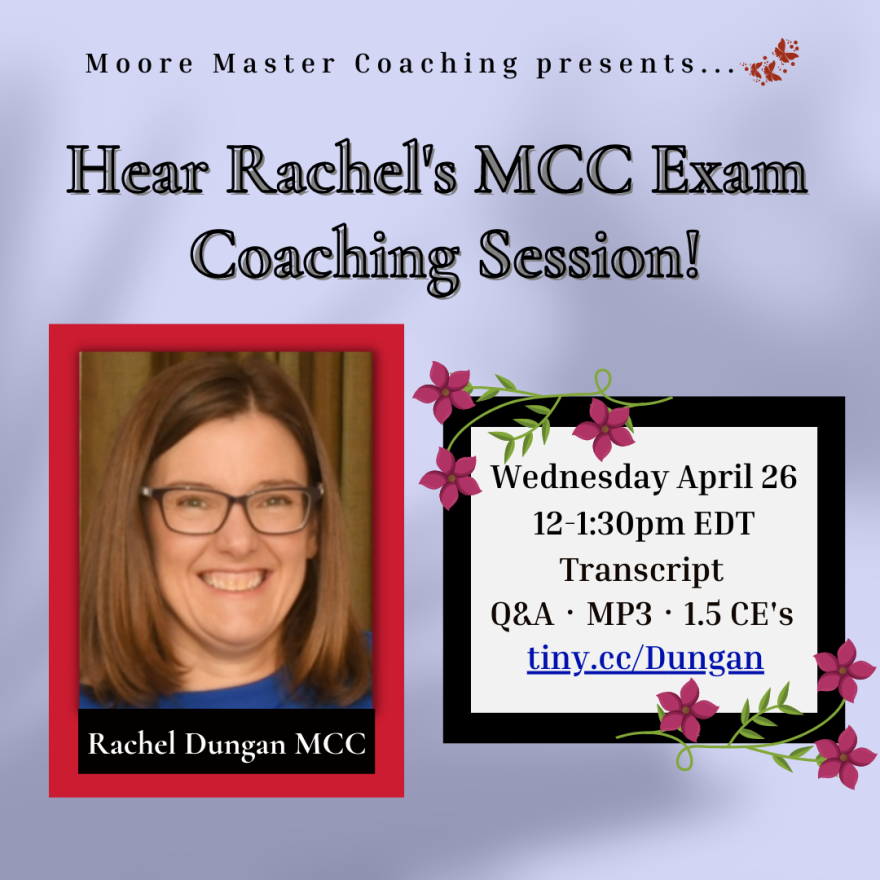4Front offers the following packages for
Mentor Coaching and
Reflective Practice Super-Vision,
in Groups and 1-on-1

Reflective practice is a fundamental component of continuing professional development and is required by all regulatory bodies of healthcare professionals in order to attain and retain registration, for trainee, newly qualified and experienced practitioners. (Anita Atwal, 2022).
Mentor Coaching is required by the International Coaching Federation (ICF) for credentialed coaches. The credentialing pathway for coaches with the International Coaching Federation requires applicants to complete a minimum of ten hours of ICF Mentor Coaching (skills based reflective practice).
Coach/Mentor Super-vision is required for coaches and mentors credentialed by the European Mentoring and Coaching Council (EMCC), to complete at least quarterly. Reflective practice is required by ICF Professionals (core competency #2) and super-vision is a recommended form of reflective practice for all ICF Professionals. In addition, a minimum of 5hr of super-vision is required for ICF credentialed team coaches.
In the Continuous Professional Development (CPD) Cycle used by Irish Pharmacists, 'Reflective Practice' underpins ALL five stages of the CPD cycle.
But what is 'reflective practice,' why is it important and how on Earth do you create the space for 'reflective practice' in an already full schedule?
WHAT IS REFLECTIVE PRACTICE?
Definitions for reflection tend to cite John Dewey (1933/1997), Donald Schön (1983) and Boud et al. (1985). From these definitions, reflection is an active, purposeful thinking process for learning and growing through experience.
Literature distinguishes between Reflection-IN-Action (developing the reflective practice skill of recognising and articulating what we’re learning on a moment by moment basis) and Reflection-ON-Action (developing the reflective practice of looking back after an event has occurred in order to extract learnings and meaning and to evaluate the theories of action used to solve the problem). Generally, reflection-on-action develops the skill of reflection-in-action.
In Pharmacy Practice, reflective practice has been defined as 'a process designed to help you analyse an experience or situation in order to create new understandings, and ultimately develop greater self-awareness. This is vital in a healthcare contexts, as your effectiveness as a practitioner in the healthcare field can have a direct impact on the health of your customers or clients.'
WHY IS REFLECTIVE PRACTICE IMPORTANT?
Have you ever been frustrated by history repeating itself - maybe a client, a colleague, a child, a spouse, (or even yourself!) repeating a destructive pattern that we know from past experience doesn't work, but they (you!) just keep doing it?
Denis Waitley warns us to 'Never become so much of an expert that you stop gaining expertise. View life as a continuous learning experience.'
And how do we continuously learn? According to John Dewey, 'We do not learn from experience.... we learn from reflecting on experience.'
What do we risk by not proactively and intentionally creating reflection time? Anita Atwal asserts that 'critical thinking is not possible without reflection'.
Reflection enables practitioners to take an objective view of their practice in order to continually improve the quality of their professional performance and to
- share knowledge with others and be supported by others
- benefit professional practice of their profession as a whole
- make sense of challenging and complicated situations
- become more client-centred and
- become more aware of power dynamics and how they may impact relationships and outcomes
- optimise work practice
- improve client experience (and patient safety if you work as a healthcare professional)
- improve inter-professional relationships
- recognise strengths and weaknesses for the sake of focusing professional development
- apply the skill of reflection to recording CPD
HOW TO FIND THE TIME FOR REFLECTIVE PRACTICE?
The busy work environment is a barrier to strategic thinking and reflective practice. For this reason, unless a practitioner consciously chooses to prioritise and schedule dedicated time for reflective thinking, it is unlikely to happen, EVEN when it is critically important and EVEN when the consequences of not doing so mean we are destined to continue to repeat the mistakes of the past on auto-pilot.
This is why the busiest, most productive and and most inspiring professionals schedule regular time for reflective practice.
They are
- less prone to burn-out,
- more fulfilled in their career and
- have fewer blind-spots when it comes to wisely navigating challenges and dilemmas.
I’m Rachel Dungan. In addition to being a wife of one, daughter of two and Mum of three teenagers, I am an Irish Pharmacist, an ICF-MCC Master Certified Coach, an EMCC Credentialed Mentor/Coach and Credentialed Super-visor. Life is busy and rewarding. But it wasn't always that way. The pivot point that inspired my evolution to become 'The Pharmacist Coach' was because I had become too busy, too over-loaded, too exhausted to pause and reflect on whether what I was doing were actually the most important things. Over the past 10 years, I have learned the value of reflective practice through personal experience and through holding that space for others to reflect. As healthcare professionals, coaches or super-visors, active reflection is even more important, because we have a profound ripple effect in the lives of the people we serve, the teams we lead and the families and friends (who frequently get what's left over after we have spent the best of us on other priorities).


Here is your invitation to enroll me as one of your partners to support you to prioritise and schedule dedicated time to hone your reflective thinking skills and practice by availing of group or one-to-one super-vision or mentor coaching with 4Front.
 1-on-1 Super-Vision for Health Professionals, Mentors and Coaches €550
1-on-1 Super-Vision for Health Professionals, Mentors and Coaches €550
This package includes four (4) 1-on-1 reflective practice super-vision sessions to be used over 12-months.
Coaching Super-Vision
CLICK HERE to read 10 questions you should ask before choosing a super-visor and feedback from some of Rachel's supervisees.
EMCC Global’s definition of supervision is: A safe space for reflective dialogue with a practicing supervisor, supporting the supervisee’s practice, development and well-being.
According to International Coach Federation, “coaching supervision is the interaction that occurs when a coach periodically brings his or her coaching work experiences to a coaching supervisor in order to engage in reflective dialogue and collaborative learning for the development and benefit of the coach and his or her clients”
The International Centre for Coaching Supervision (ICCS) definition is: “Coaching/mentoring supervision is a collaborative conversation in which a supervisor and a supervisee reflect on the supervisee’s practice and wellbeing to help them develop and thrive as a practitioner, while also ensuring the quality and integrity of their work for their clients, the systems they operate in and their profession as a whole.”
The purpose of super-vision is to provide
- A reflect space where you can talk about and reflect on your practice and on yourself as a practitioner
- A confidential, safe space to be challenged, validated and be held accountable to your personal and professional standards
- An extension of the learning space to share expertise and experience for the sake of growth, development and deepening the value you offer your clients.
- To support for your professional practice so that you can be the best practitioner/coach/mentor you can be.
Possible outcomes from super-vision
From my experience, possible outcomes of supervision include
- a host of practices and strategies to draw on aimed at being a more effective practitioner
- deriving greater satisfaction from your work
- a greater sense of authenticity, meaning and purpose
- the ability to confidently take decisive, ethical action in moments of doubt
- heightened (self-) awareness
- clarity of worldview (your personal as well as professional values & beliefs)
- improve client experience (and patient safety if you work as a healthcare professional)
- knowledge of your strengths, blind spots, assumptions and triggers
- a better understanding of the impact you have on your clients
- more effective coordination of professional action
- A common result is also the growth of your professional practice, both in quality and quantity of your work
 Group Super-Vision for Mentors and Coaches
Group Super-Vision for Mentors and Coaches
If you are a coach, mentor or supervisor, and you have a group of 3-5 practitioners, who are committed to monthly group reflective practice super-vision sessions, hosted by a professionally trained group super-visor, please contact rachel@racheldungan.com to form the group. Rates are €90 per person per session (min 4 session engagement). (Reciprocoach / Moore Master Coach Members Discounted rate)
CLICK HERE to read 10 questions you should ask before choosing a super-visor and Rachel's client feedback.
Group supervision provides an opportunity for practitioners to work together with other professionals to review their cases and explore issues and challenges from a personal, professional, and systemic perspective. The process of group supervision provides insight, reflection, direction, support, and the sharing of expertise. www.associationforcoaching.com
Group Super- Vision Pros
- Shared Learning: Supervisees can share their experiences, successes, challenges and dilemmas with each other, which can lead to expanded insights and learning.
- Diversity of Perspectives: Supervisees bring different perspectives, experiences and styles, which can provide a rich learning environment and offer a broader range of feedback and support.
- Sense of Community and Support: Being in a learning community both in and between sessions reduces a sense of professional isolation and increases the sense that 'we have each others' back.'
- Promotes Critical Thinking and Questioning: By offering different perspectives, group super-vision allows supervisees to challenge existing beliefs, biases or assumptions, shine a light on where we are being unduly self-critical, and provide an opportunity for collaborative learning and exchange of varied perspectives.
This package includes three mentor coaching sessions to be used over 3 months, towards ACC, PCC or MCC credential.
ICF Mentor Coaching
Click here for 10 questions you should ask before choosing a Mentor Coach - and also read feedback from Rachel's mentees
Coach mentoring: Like the relationship you have with your clients, our mentoring partnership will be one we design together. However, unlike a pure coaching approach, while mentoring I will offer guidance and suggestions for development. While we will do some goal setting and action planning, our focus will be on developing your coaching skills in line with the ICF core coaching competencies.
MENTOR COACHING FOR CREDENTIALING: THE ICF’S DEFINITION
"Mentor Coaching for an ICF Credential consists of coaching and feedback in a collaborative, appreciative and dialogued process based on an observed or recorded coaching session to increase the coach's capability in coaching, in alignment with the ICF Core Competencies.
For purposes of credentialing exam requirements, mentor coaching means an applicant being coached on their coaching skills rather than coaching on practice building, life balance, or other topics unrelated to the development of an applicant’s coaching skill.”
BEING A MENTOR COACH For the ICF Credentialing Process
Definition by International Coach Federation: "Providing professional assistance in achieving and demonstrating the levels of coaching competency demanded by the desired credential level sought by a coach applicant (mentee) (i.e. offering coaching on coaching skill / competency development)".
Mentoring sessions are designed to be a safe, non-judgmental, collaborative space for developing coaching skills. Together, we will be observing, coaching, identifying feedback and discussing the learning in relation to the ICF Core Competencies.
In order to learn from the perspective of coach and observer, I highly recommend that you routinely listen back to a sample of your recorded coaching sessions. It is in the observation that we all get the opportunity to learn. Observation is in itself a powerful learning process, especially when combined with a structured feedback discussion with a mentor coach, focused around the observed strengths and stretches in relation to the ICF Core Competencies, and especially the PCC Markers.
NOTE: I only offer this preferential discounted 1-2-1 mentor coaching rate to Reciprocoach / Moore Master Coach Members.
There are different membership levels for both resources.
NOTE: The reason I offer this discount for Reciprocoach and Moore Master Coaching Members, is because I am a member of the Reciprocoach Group Mentoring and Reciprocoach Super-Vision Faculty and I have shared one of my MCC Exam Pass recordings with Moore Master Coaching. I have found my memberships of both to be enriching and highly rewarding as a coach and coachee, mentor and mentee and super-visor and supervisee.



 1-on-1 Super-Vision for Health Professionals, Mentors and Coaches €550
1-on-1 Super-Vision for Health Professionals, Mentors and Coaches €550  Group Super-Vision for Mentors and Coaches
Group Super-Vision for Mentors and Coaches  1-on-1 ICF Mentor Coaching €405
1-on-1 ICF Mentor Coaching €405 